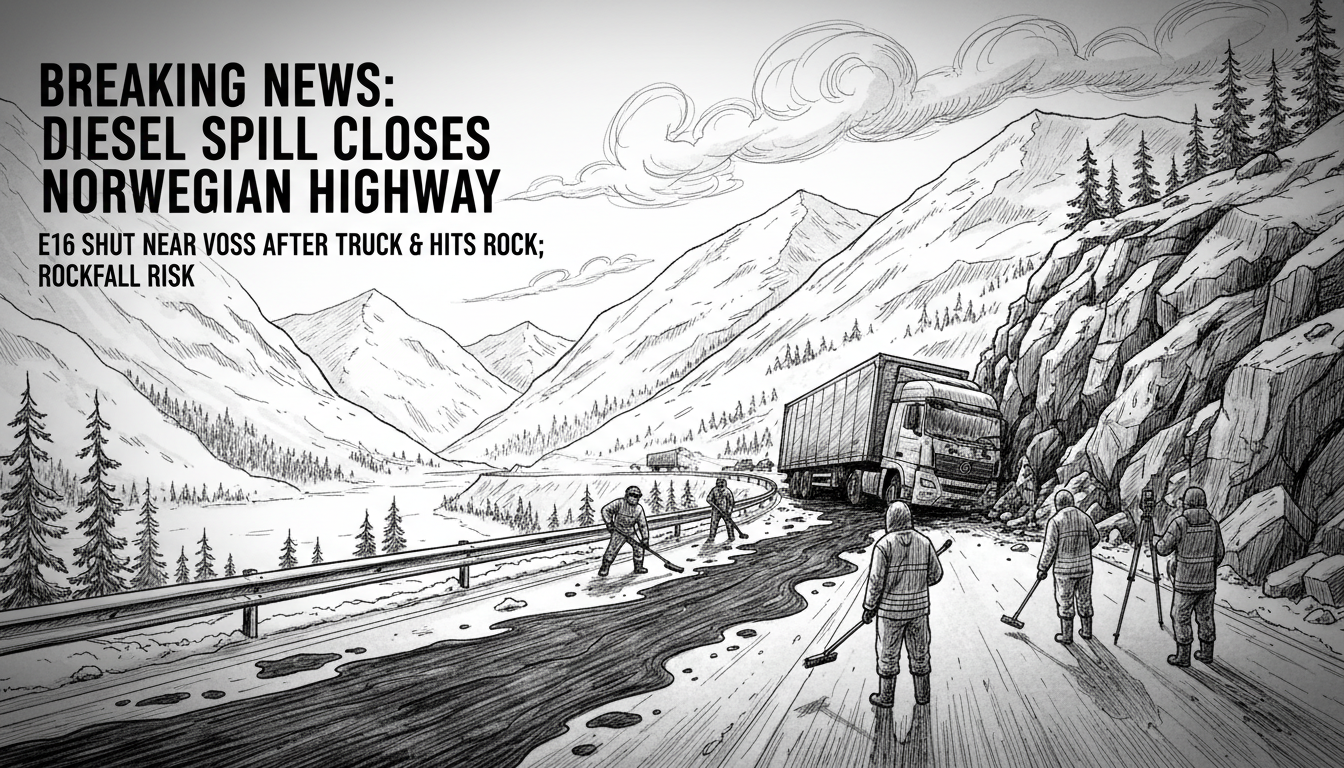A major highway in western Norway remains closed after a truck collision caused a substantial diesel spill. The incident occurred on the E16 route between Bulken and Evanger in Voss municipality during Friday morning rush hour.
A freight truck struck a 300-kilogram rock that had fallen onto the roadway around 6 AM. The impact punctured the vehicle's diesel tank, creating a 200-meter long fuel slick that made the road surface dangerously slippery.
Rock fragments from the collision also struck another vehicle traveling in the opposite direction. That car sustained minor damage, but no serious injuries were reported.
Traffic operator Rolf Einar Vågheim stated that authorities cannot yet estimate when the highway will reopen. The damaged truck remains at the scene awaiting removal by recovery services.
Voss fire department response leader Bjørn Dolve participated in the emergency operation. He confirmed that rock debris scattered across a wide area, but identified the diesel leakage as the primary safety concern.
"The diesel spill makes the road surface extremely slippery," Dolve explained. "We have called for specialized assistance to treat the roadway with a substance that neutralizes the diesel and improves traction."
The closure comes amid multiple rockfall reports throughout the county during Friday morning. Authorities also received notifications about rockfalls in the Aurland area.
Vågheim from the Traffic Center urged drivers to exercise "extra caution" during morning hours when temperature changes can increase rockfall risks.
Geological assessment will be necessary before the E16 at Øvstøyni can safely reopen. Experts must evaluate the stability of the surrounding rock formations to prevent additional incidents.
This incident highlights the persistent challenge Norway faces with mountain road safety. The country's extensive network of highways traversing rugged terrain makes rockfalls a recurring hazard, particularly during seasonal transitions when freezing and thawing can dislodge rocks.
International drivers should note that Norwegian mountain roads require heightened awareness, especially during early morning and evening hours when temperature fluctuations are most pronounced. The country's rapid emergency response systems typically mobilize multiple agencies including fire departments, traffic authorities, and geological experts when such incidents occur.
The E16 serves as a crucial transportation artery connecting eastern and western Norway. Extended closures can disrupt commercial transport and affect regional mobility, demonstrating how geological hazards directly impact Norway's infrastructure and economy.

